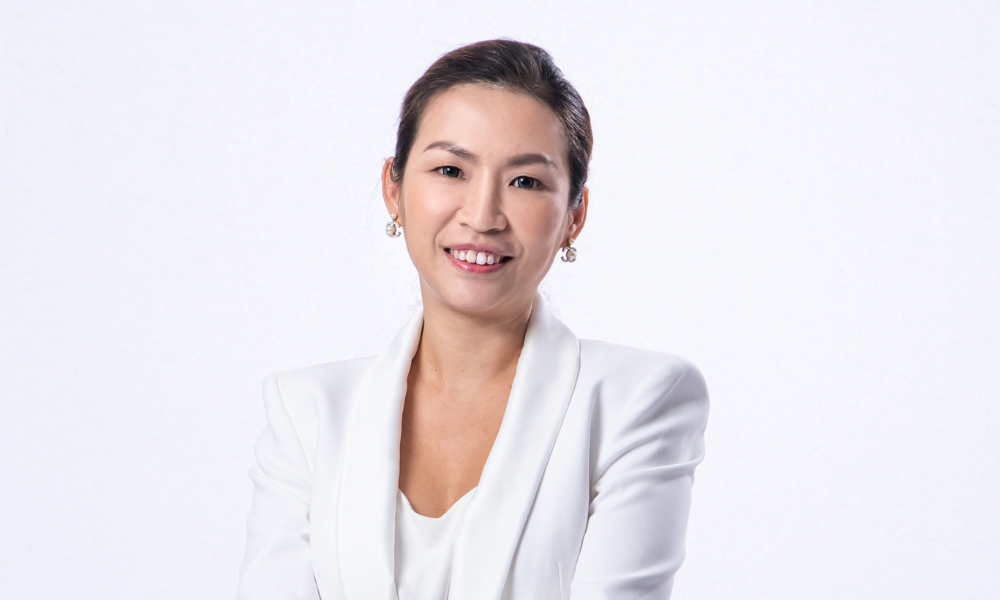Stress and burnout can eat into your bottom line, says media giant and startup founder Arianna Huffington
.jpg)
Companies must address the “epidemic” of workplace stress of continue paying an unbelievably high price, says media mogul and start-up founder Arianna Huffington.
“[Stress] is affecting all outcomes,” Huffington said at the CNBC-hosted Future Investment Initiative in Riyadh, Saudi Arabia.
"Stress and burnout are costing US businesses US$300 billion. It's affecting, in a very deep way, health care and health care costs; because 75 per cent of diseases and health care costs are because of preventable stress-related conditions, and we see that globally," she added.
A Paychex survey of over 2,000 full-time employees in the United States found that more than 60 per cent of workers feel stress levels at least three times a week.
Huffington added that employees are also most likely to act out when they are under high stress.
“Investments in human capital are going to be as important as investments in technology in the future,” she said.
Huffington’s startup, ThriveGlobal,provides strategies and tools to enhance well-being, purpose and performance for individuals and businesses.
Stress also breeds other challenges for employers and workers alike – productivity, retention and engagement.
For example, a Gallup poll said only 15% of the world’s 1 billion full-time workers feel a strong sense of engagement at work.
"All these issues… are not just HR issues, they are CFO (chief financial officer) issues, because they fundamentally affect the bottom line," Huffington said.
So what can employers do about something that clearly cannot be fixed overnight? Huffington believes it could start with something as fundamental as encouraging workers to get enough sleep.
Amazon CEO Jeff Bezos, for instance, shares he makes sure he slept eight hours a night to feel energized.
"If you shortchange your sleep, you might get a couple of extra 'productive' hours, but that productivity might be an illusion. When you're talking about decisions and interactions, quality is usually more important than quantity," Bezos said, as reported by AsiaOne.
Alphabet Executive Chairman Eric Schmidt also said sleep can "only enhance your physical and mental ability to do almost everything."
“We have been living under this delusion that in order to succeed, to be most effective at our jobs, we need to burnout," said Huffington.
Now, she said, people have the data that makes it unequivocally clear that we actually need to recharge, in order to be able to be most effective and most creative.
"It's critical that (people) have that opportunity to recharge and return to work, operating and running on all cylinders."
Related stories:
Why bosses must set a mental health example
Could being overworked kill you?
“[Stress] is affecting all outcomes,” Huffington said at the CNBC-hosted Future Investment Initiative in Riyadh, Saudi Arabia.
"Stress and burnout are costing US businesses US$300 billion. It's affecting, in a very deep way, health care and health care costs; because 75 per cent of diseases and health care costs are because of preventable stress-related conditions, and we see that globally," she added.
A Paychex survey of over 2,000 full-time employees in the United States found that more than 60 per cent of workers feel stress levels at least three times a week.
Huffington added that employees are also most likely to act out when they are under high stress.
“Investments in human capital are going to be as important as investments in technology in the future,” she said.
Huffington’s startup, ThriveGlobal,provides strategies and tools to enhance well-being, purpose and performance for individuals and businesses.
Stress also breeds other challenges for employers and workers alike – productivity, retention and engagement.
For example, a Gallup poll said only 15% of the world’s 1 billion full-time workers feel a strong sense of engagement at work.
"All these issues… are not just HR issues, they are CFO (chief financial officer) issues, because they fundamentally affect the bottom line," Huffington said.
So what can employers do about something that clearly cannot be fixed overnight? Huffington believes it could start with something as fundamental as encouraging workers to get enough sleep.
Amazon CEO Jeff Bezos, for instance, shares he makes sure he slept eight hours a night to feel energized.
"If you shortchange your sleep, you might get a couple of extra 'productive' hours, but that productivity might be an illusion. When you're talking about decisions and interactions, quality is usually more important than quantity," Bezos said, as reported by AsiaOne.
Alphabet Executive Chairman Eric Schmidt also said sleep can "only enhance your physical and mental ability to do almost everything."
“We have been living under this delusion that in order to succeed, to be most effective at our jobs, we need to burnout," said Huffington.
Now, she said, people have the data that makes it unequivocally clear that we actually need to recharge, in order to be able to be most effective and most creative.
"It's critical that (people) have that opportunity to recharge and return to work, operating and running on all cylinders."
Related stories:
Why bosses must set a mental health example
Could being overworked kill you?





